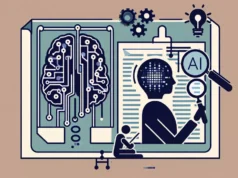As we navigate the digital age, a terrifying reality has begun to take shape – data breaches have become frighteningly commonplace and cybersecurity concerns have amplified, sending ripples through global economies and straining diplomatic relations. The situation has dire implications for personal privacy, corporate secrecy and national security in a changing world where data is fast becoming the new currency.
From colossal Fortune 500 companies to the strategically-targeted small enterprises, no business seems to be entirely safe. Even governments are not immune. Recent breaches like the SolarWinds hack have forced national security agencies and federal industries into a rethink, more so as sophisticated cyberattacks seem to be the new normal.
The illusion of cybersecurity has been pierced through repeatedly, from the infamous Yahoo hack compromising 3 billion accounts, to the relentless Facebook data harvests and LinkedIn’s data of 500 million users being sold on a hacker forum recently. These incidents illuminate the colossal sums of money corporations risk losing, and the staggering amount of personal information that lies vulnerable in the crosshairs of determined cybercriminals.
The dramatic rise in remote work due to the global health crisis has inadvertently heightened these risks, escalating the cybersecurity woes of organizations across the globe. Remote systems have proven to be more challenging to secure compared to in-house networks, largely due to unsecured home networks and personal devices. Additionally, employees’ lack of adherence to online safety practices has created a safe haven for bad actors in the cyber domain.
Cybercriminals employ carefully crafted strategies, often zigzagging between different tactics, from spear-phishing to ransomware attacks, exploiting software vulnerabilities, or simply capitalizing on human error. Spear-phishing, for instance, continues to be a top methodology, where seemingly innocuous emails masquerade as trustworthy senders but contain malicious links or files, illustrating a simple yet effective example of social engineering.
One of the most insidious and resurgent forms of cybercrime has been ransomware. The FBI estimates that the cost of ransomware attacks in the U.S. alone has skyrocketed, reaching a whopping $1.3 billion in 2020, a staggering 225% increase from the previous year. Corporations have been known to pay astronomical sums for decryption keys, with a proportion of these funds traced back to internationally-sanctioned entities, casting a shadow over the legalities and ethical implications of such transactions.
Prominent cybersecurity experts suggest that effective cybersecurity is contingent upon a holistic and multilayered approach. Cyber hygiene, akin to personal hygiene, is the first step – a process including proactive measures to maintain system health and improve online safety, such as regularly updating passwords and keeping software updated. Investing in cybersecurity insurance is another prudent step, acting as a financial buffer in case of a data breach.
As governments grapple with this escalating menace, legislation to help corporations better protect themselves and their consumers is taking shape. The European Union’s General Data Protection Regulation (GDPR) is one of the most notable examples of legislation designed to protect consumer data. Likewise, the California Consumer Privacy Act (CCPA) stands as a significant stride towards consumer data protection by a U.S. state.
However, these laws alone do not guarantee safety from breaches. It remains to be seen how ethical standards, legal frameworks, corporate policies, user awareness and compliance, and technological advancements will rise to the daunting challenge posed by cybercrime.
Innovation in artificial intelligence (AI) and machine learning (ML) also shows promise, with the potential to automate threat detection and response, thus mitigating the human error factor. However, these tools are double-edged swords, with cybercriminals also leveraging these technologies to launch sophisticated attacks.
The escalation in cybersecurity concerns in the face of increasing data breaches is a stark reminder of the vulnerability of our digital landscape. As we move forward through this age of digital disruption, it is clear that cybersecurity is not just a technological issue, but one that encompasses societal, economic and political dimensions. Only time will reveal how well we adapt, evolve and secure our digital frontiers.
Sources:
1. CNBC, CNBC Tech: “Facebook, Yahoo user data leaks mean it’s time to rethink your online security”, April 8, 2021.
2. FBI’s 2020 Internet Crime Report
3. EU GDPR Information Portal.
4. California Department of Justice, CCPA Overview and Compliance Guide.
5. Threatpost, Rapid7 Threat Intelligence: “How Cybercriminals Use AI: A Resource for Defense”, March 17, 2021.
6. Bloomberg Businessweek: “The Big Hack: How China Used a Tiny Chip to Infiltrate U.S. Companies”, October 4, 2018.






